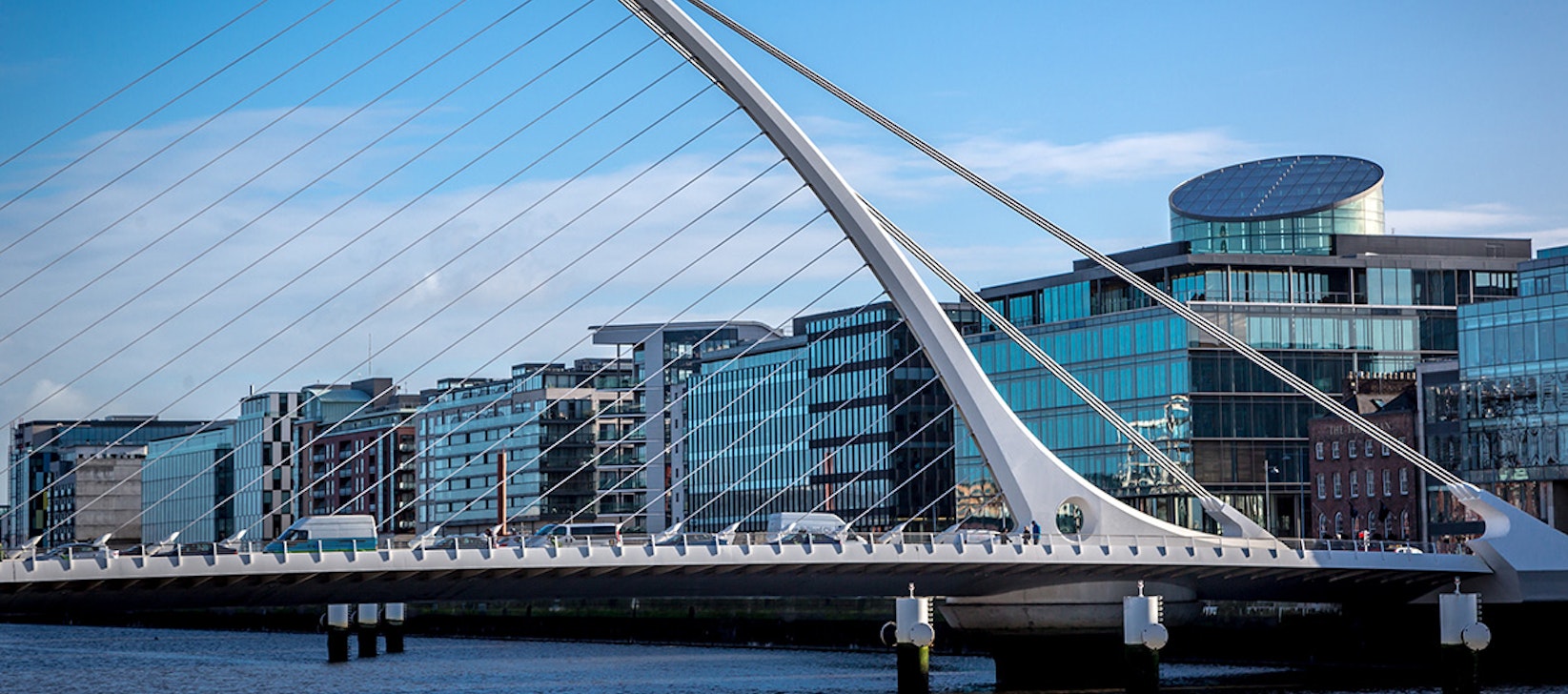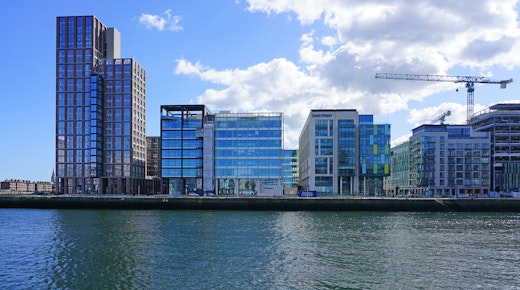Smart Dublin is an initiative of the four Dublin local authorities to engage with smart technology providers, researchers and citizens to solve city challenges and improve city life.
Cities and governments around the world are aspiring to be ‘Smart’. While there is no clear definition of a smart city there are some common threads including a focus on the increased use of sensors and instruments that allow cities to be better monitored and managed in real time. A smart city is also considered as one whose economy is increasingly driven by technology inspired innovation and entrepreneurship that in turn will attract businesses and jobs, create efficiencies and raise the productivity and competitiveness of the public and private sectors. Smart cities also involve increased collaboration and engagement between the city authority, the academic and business sectors and, most importantly, citizens.
The creation of a Smart Dublin regional structure in 2016 was initiated to ensure that Dublin can take full advantage of some of the big tech trends that are transforming how we live and work. These trends include Mobile, Cloud Computing, the Internet of Things (IOT), Big Data, Machine Learning and Artificial Intelligence.
One of the main ideas is to turn our city challenges into opportunities for innovation, addressing areas such as traffic congestion and mobility, how we respond to extreme weather events, improving energy efficiency and environment performance for example. At the centre of this is also how we improve citizen engagement and drive more efficient service delivery.
Creating new opportunities for start-ups and entrepreneurs
Smart Dublin and Enterprise Ireland are collaborating in supporting entrepreneurs to solve city challenges and are delivering one of the largest smart city innovation programmes globally. This programme is being delivered through Enterprise Ireland’s Small Business Innovation Research programme (SBIR). Over 2016 and 2017 we have launched four challenges with over €1 million funding committed to source solutions to help scale up cycling, address illegal dumping and better monitor flooding risk across Dublin. To date 23 companies have benefitted from funding of between €12,500 and €25,000 each as well as working alongside local authority teams to design and pilot their solutions across Dublin.
We are supporting companies to build new products and services pushing the realms of innovation and generating new job opportunities.
Accelerating Dublin’s smart city ambition
Dublin is making real progress on its Smart City journey. We have all the key ingredients in place to realise our potential – world leading tech companies, a vibrant ‘start up’ ecosystem, universities and a proactive city. However a real challenge is ensuring that we can keep up with the pace of technology innovation with relevant and appropriate policies, supports and regulation.

Examples of how Dublin is getting smarter
A game changer was the delivery of real time passenger information (RTPI) for Dublin’s public transport system, in particular on the capital’s extensive bus network – with this information now available on signage and also as a real-time data feed to your smartphone.
Dublin’s Traffic Management Centre with its intelligent transport systems, adaptive traffic signalling, and public transport prioritisation as well as an extensive CCTV network (with over 200 networked cameras) helps to keep traffic moving across the city.
Dublindashboard.ie created by Maynooth University is one of the most comprehensive city dashboards providing access to thousands of interactive data visualisations. Phase two of the dashboard is underway and is supported through a €2 million research grant from Science Foundation Ireland.
Croke Park (one of the largest stadiums in Europe) is one of the world’s first carbon neutral stadiums and now the test bed for a suite of cutting edge Internet of Things (IoT) technologies working with companies such as Intel and Microsoft.
In order to respond more effectively to flooding we now have a network of sensors monitoring river levels, rainfall and local weather conditions in real time. The city is collaborating with Intel and the CONNECT Research Centre for Future Networks in TCD to deploy experimental low cost rainfall sensors.
Over 400 smart bins (Big Belly compactors) were deployed across Dún Laoghaire-Rathdown resulting in a significant increase in efficiencies. These bins not only collect and compact waste with real time monitoring, but also measure environmental variables and passing pedestrian numbers.





